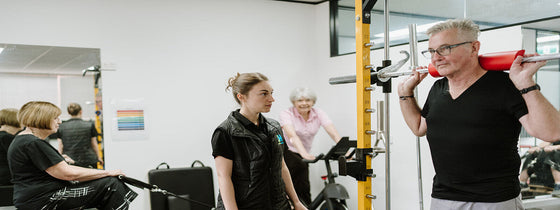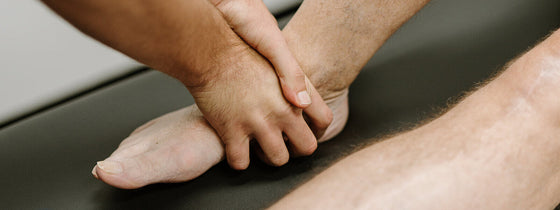What causes tingling sensations?
Tingling in your arms, hands, legs, or feet tends to occur when one or more of our nerves have become irritated. This often occurs at either a spinal level or a local level, but what exactly does this mean?
Central neural irritation
When nerves exit the spine, they do this through something called nerve roots. These nerve roots can become irritated as they exit the spine, which can result in a tingling sensation in the areas that the nerve supplies. On the other hand, before nerves exit the spine, they form part of the spinal cord, and sometimes, tingling can arise from irritation of the spinal cord. This can result in greater discomfort than just an irritated nerve root.
Altogether, we call this central neural irritation - because it is stemming from the spine, which is regarded as a central location in the body.
An example of central neural irritation is tingling in the hands, originating from an angry nerve root in the neck. As each nerve exits the spine, it goes on to innervate specific parts of our body. Many of the nerves that exit the cervical spine (also known as your neck) go on to supply the arm. Therefore, it is normal for an angry nerve root to then cause altered sensation and tingling in the arm.
Local neural irritation
Tingling can also come from other parts of the body away from the spine. In anatomical terms, this is where tingling arises from irritation of a peripheral nerve, which is basically a nerve that is located away from the spinal cord.
There are various possible causes for this, some of which include:
We call this local neural irritation because the tingling is stemming from a specific location away from the spine (e.g., the wrist).
An example of this is Carpal Tunnel Syndrome. This condition is characterised by swelling in the wrist, which places increased pressure on one of the nerves that passes through the wrist. This leads to symptoms such as numbness, tingling, pain, and weakness in the hand. In this case, the symptoms are not originating from the spine and are instead coming from a ‘local’ region (i.e., the wrist).
Who can help me if I have tingling in my hands or feet?
A thorough clinical assessment is needed to determine the cause of your tingling, and whether it is stemming from central or local irritation. Your physiotherapist, supplemented by your GP, can help you with this assessment and make a plan to improve those tingles!
Understanding the cause of the tingling is essential in determining what kind of treatment is best suited to each person. If the underlying issue is central neural irritation, then manual and exercise treatment should be directed at the spine. Meanwhile, if the underlying issue is local neural irritation, treatment should be directed to the area where the problem is stemming from (i.e., the wrist for carpal tunnel syndrome). The key is to see your physiotherapist soon, for the earlier we can start to work on addressing this problem, the sooner we can hopefully get on top of it.
Your physiotherapist can perform manual therapy techniques that may provide symptom relief, and provide exercises that can help to address the underlying issue. Meanwhile, if needed, your GP may be able to prescribe medications that can ease your symptoms whilst you rehabilitate from your injury. In some cases, your GP may refer you to a specialist if further assessment and treatment are needed, but, pleasingly, this is not always needed or overly common.
As always though, pain is multi-factorial and there are several other factors to be considered along with those discussed here. So, if you are experiencing tingling sensations, book in to see one of our Physiotherapists!

If you're experiencing back or neck pain with neurological signs and symptoms, a thorough neurological examination is crucial for accurate assessment and effective treatment. In this Optimal Tip learn more about what we mean by completing a neurological exam!

Squats, deadlifts, and calf raises are key movement patterns that should be part of every strength and conditioning program—regardless of age and activity level. These functional movements support joint health, improve posture and balance, and reduce the risk of injury while building strength where it matters most.

A ganglion cyst is a fluid-filled swelling that typically forms over a joint or tendon sheath, causing discomfort and pain, especially when pressing against nerves or joints. Proper assessment and treatment, including physiotherapy, are essential for managing symptoms and improving function in the presence of a ganglion in your hand, foot, or wrist.